The Atlantic Community - Part I
The genesis of the Atlantic Community came in the autumn of 1954 as it became increasingly apparent to His Majesty’s Government in Ottawa that Enoch Powell, despite the staunch unionism of an aging Winston Churchill, would never permit a restoration of a United Kingdom of Great Britain. Powell was passionately wedded to his
dirigiste English nationalism and had no interest in seeing England subsumed back into a union with Scotland and Wales.
Nor were matters helped by Powell’s insistence that Princess Elizabeth remain England’s Head of State rather than allowing Edward VIII to reclaim the throne.
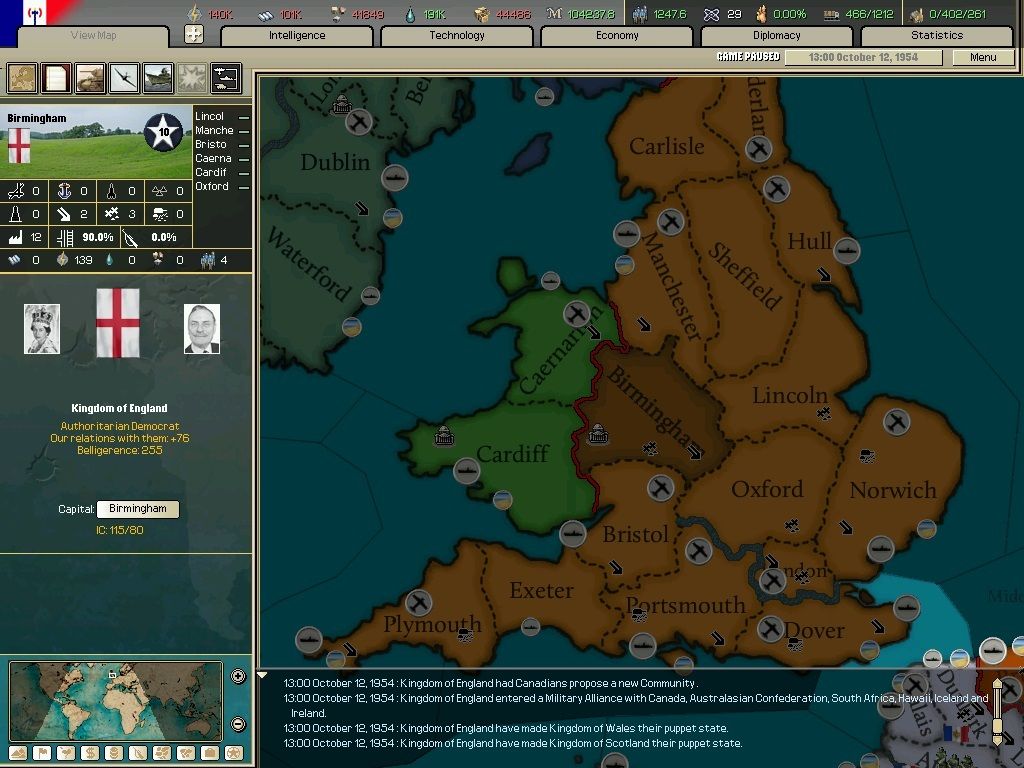 Although Powell's emerging National Party successfully blocked the restoration of Great Britain, it inadvertently united opposition MPs for the first time under the banner of 'unionism'.
Although Powell's emerging National Party successfully blocked the restoration of Great Britain, it inadvertently united opposition MPs for the first time under the banner of 'unionism'.
Predictably this caused much outrage amongst the Exiles in Canada, including Edward VIII himself. However, many Canadian politicians, especially Liberals, were less unhappy at the news. After all, as the leading nation of the British Empire for over a generation they had no willingness to see a restored Great Britain once again expecting Canada to be subservient to interests which were not its own.
So instead a compromise was sought. Ultimately it would rest on acceptance of the idea that a looser linkage of the British dominions was the only way to accommodate the disparate interests of Canada, South Africa and Australasia while still offering a way to restore the British Empire in some form.
The core idea which emerged was that of the creation of a new ‘community’ of the Anglo-Saxon nations - one which would be bound together through culture, heritage, trade, currency and a common military alliance.
Tentative backchannel discussions with the governments in Birmingham (London still not being sufficiently reconstructed to accommodate all the machinery of government), Edinburgh and Cardiff revealed that this concept would be acceptable them, not least as a way to appease the large minority of unionist sentiment.
The key question in Ottawa then became one of which nations would be invited to join the community. Some, especially Conservatives, favoured a ‘Brittanic’ Community which would be confined solely to the nations of the British Empire. Others, however, especially free-trade Liberals and businessmen who feared damaging trade with the United States, favoured an ‘Atlantic’ Community to which the USA, Iceland and Ireland would also be invited to join.
Ultimately the Atlanticists won out over the Brittanicists and, when a great conference was called in Halifax, it was to negotiate the creation of an Atlantic Community.
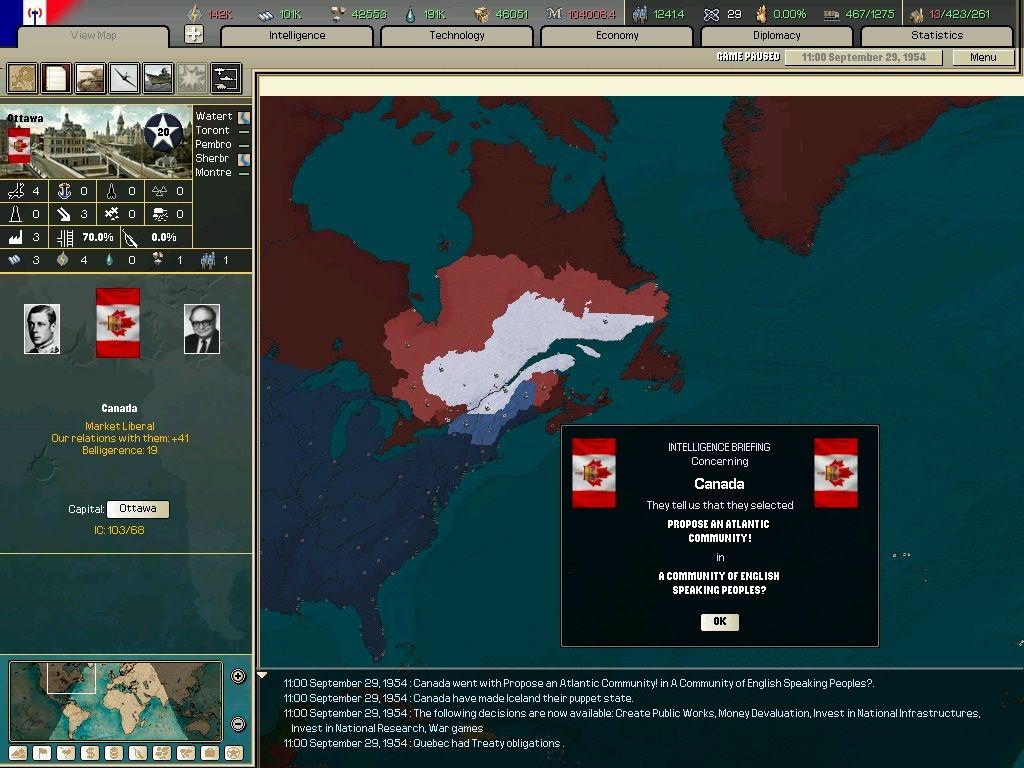
The key delegations to attend the conference were from the dominions of the British Empire and the Home Nations of England, Scotland and Wales (who arrived a week early to finally resolve the question of the status of the Royal Family in the new post-syndicalist world), along with Ireland, the Caribbean Federation (interested in the prospect of trade ties despite having broken ties with the British Empire following the election of a nationalist government in the late 30s), Cuba, Hawaii and the United States.
Also in attendance were delegations from the provisional governments of Norway and Sweden and from the Republic of Iceland. Since all of these were quasi-states under heavy Canadian control, however, it was a foregone conclusion that they would all agree with anything the Canadians proposed.
After days of negotiation a provisional proposal was reached. The nations which joined the Atlantic Community would agree to form a common defensive alliance, where an attack on any individual nation would be treated as an attack on all of them, to form a free trade zone through a customs union (along with a commitment to greater economic integration in the future) and to peg their currencies to each other in a new Sterling zone where the different national currencies would all have fixed exchange rates with each other based on their values at the time of joining the Community.
It was immediately apparent, however, that the idealist dreams of some proponents of an Atlantic Community would never come to pass.
The United States under the isolationist President Taft balked at the idea of committing to a military alliance and instead simply reaffirmed its commitment to its free trade treaty with Canada. Cuba also declined to join the Community, wary of being subsumed into an Anglo-Saxon dominated organisation.
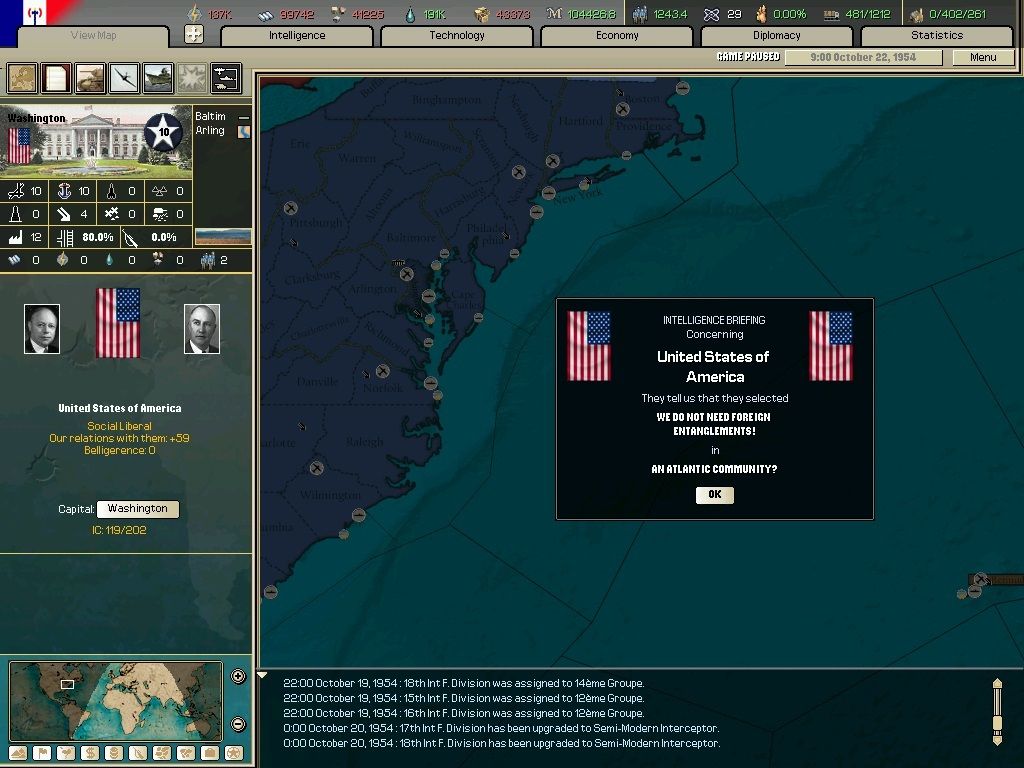
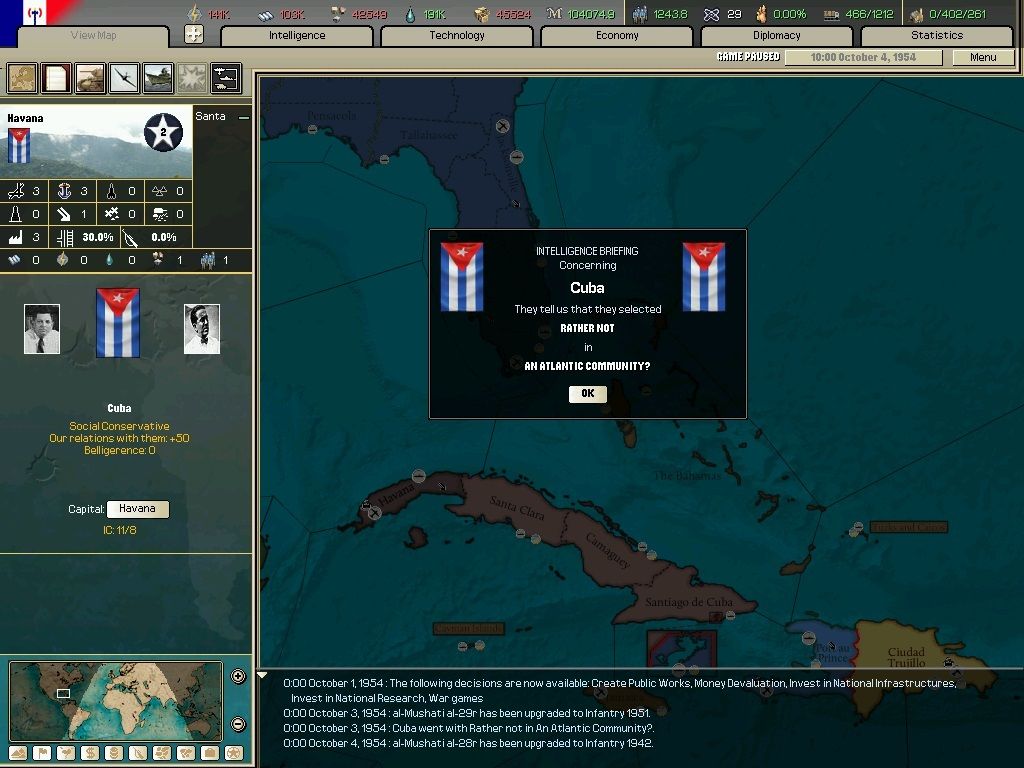
Ireland, however, surprised many by choosing to join the Community - yet this was less surprising if one considered how reliant its economy was on trade with England, Scotland and Wales. Ireland even went further by agreeing, along with the other nations of the British Isles, to form a currency union (already de facto in effect) where each nation would use the same Pound Sterling with a new ‘Bank of the Isles’ in Liverpool setting interest rates.
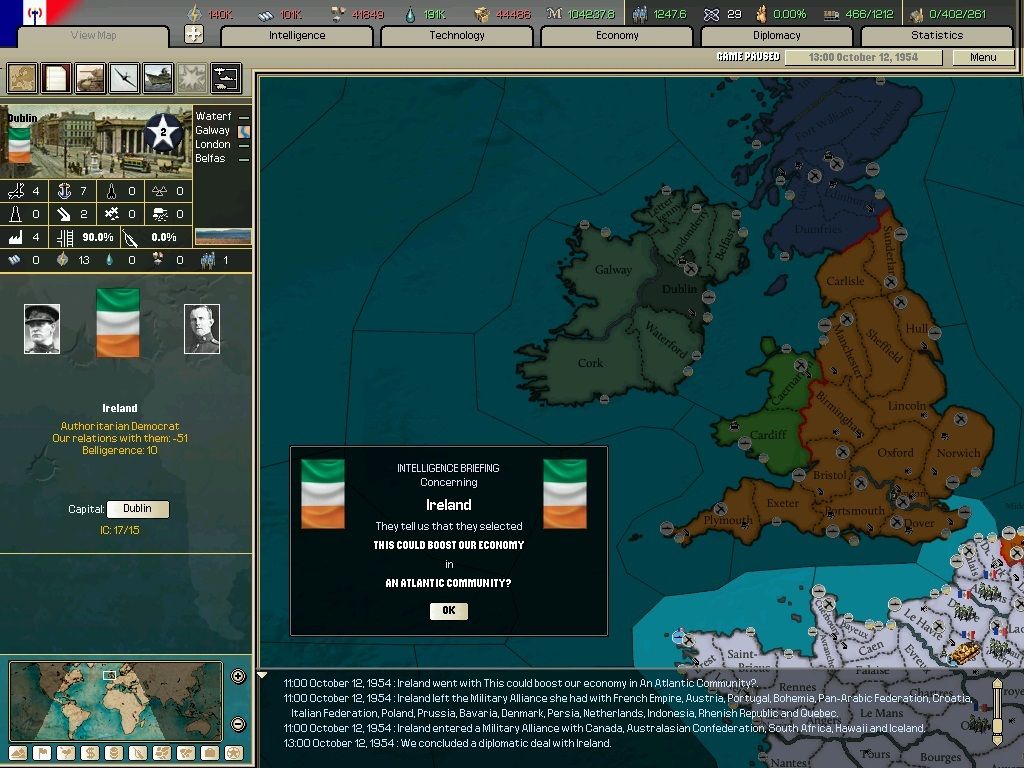
With this agreement, the seeds of English economic dominance of the British Isles were sown - with a vastly larger population and economy than any of the other Home Nations it was inevitable that he Bank of the Isles would primarily focus on the needs of the English economy and the governments in Wales and Scotland inevitably began to come more and more under the influence of their larger neighbour.
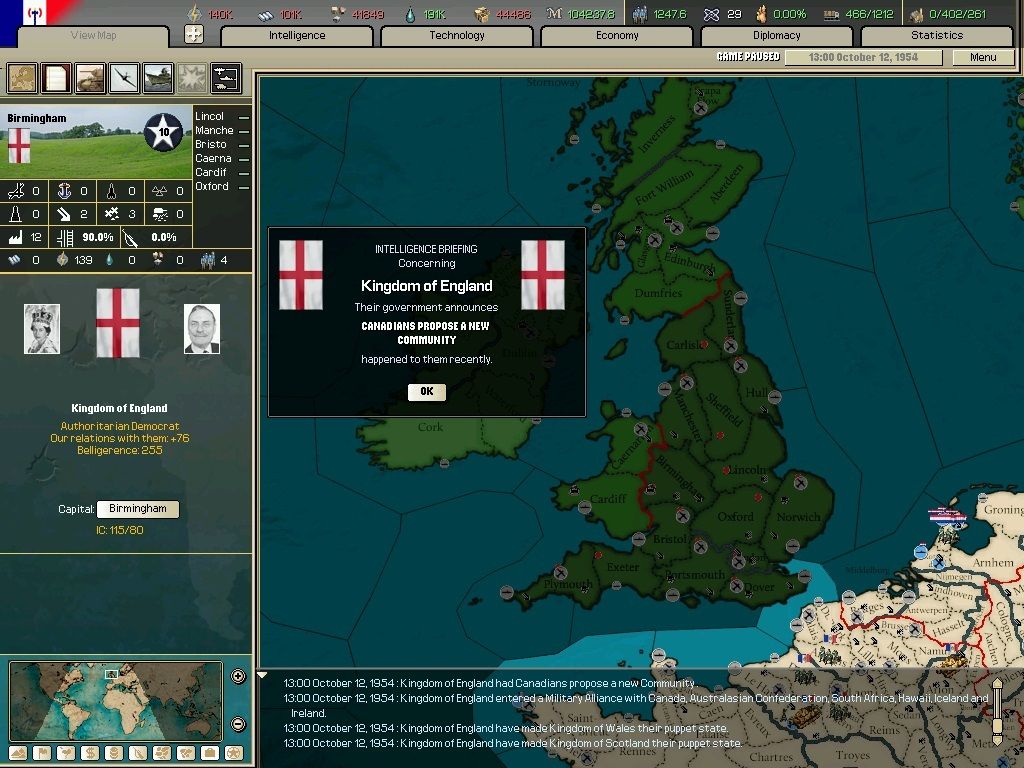
Similarly, the Caribbean Federation, Iceland and Hawaii also all joined the Community out of a desire to secure trade links in the face of a League dominated Europe whose external tariffs were highly punitive to anyone seeking to export anything other than food to Europe.
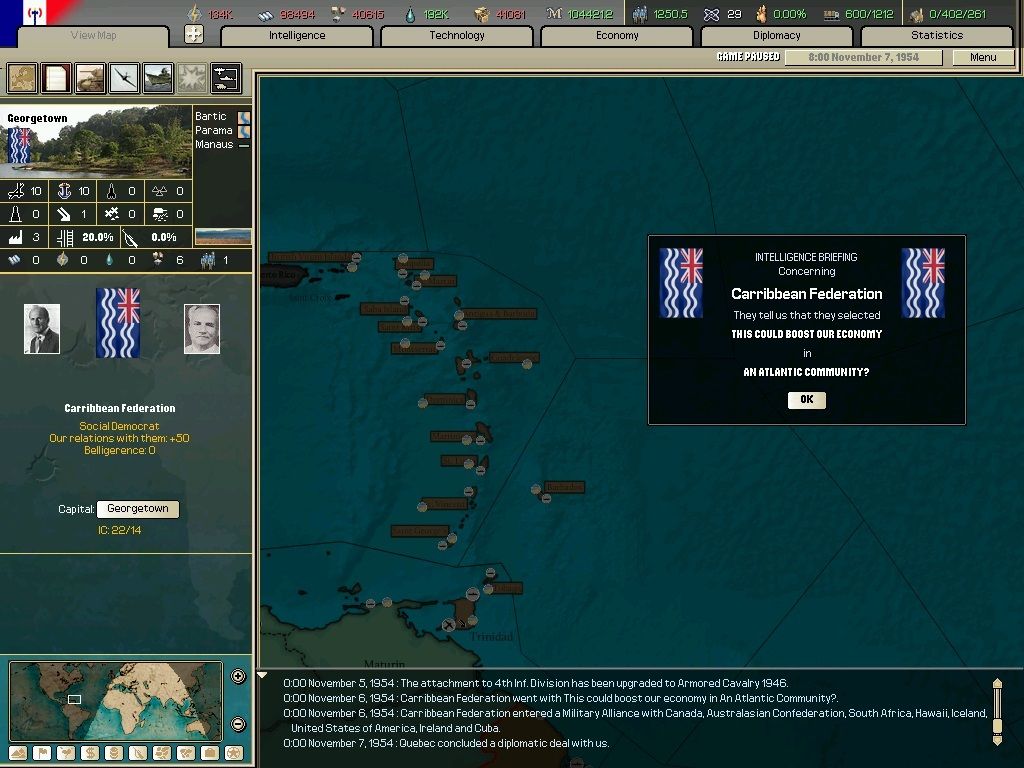
Indeed, the Caribbean Federation, despite its republican constitution, even went so far as to re-join the Imperial Economic Development Corporation and the Imperial Air Training scheme, paving the way for the other nations of the Community to do the same and ultimately leading to the substitution of the word Atlantic for Imperial in the names of the schemes.
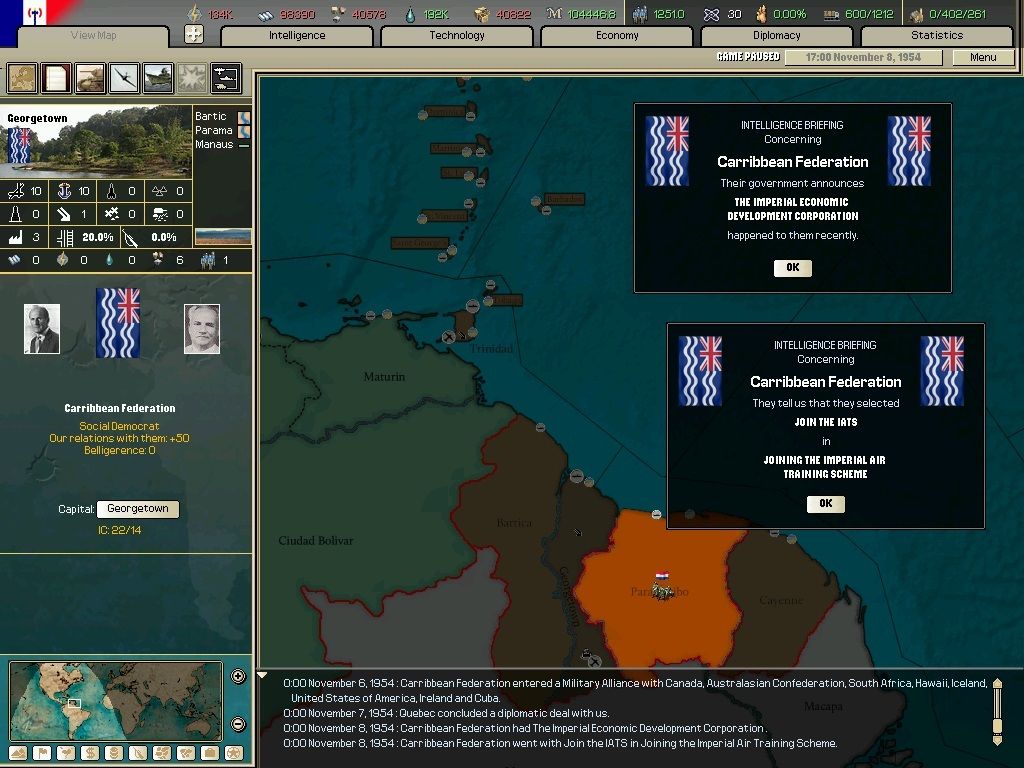
When the South African and Australasian governments came to make a decision they were both identical in their enthusiasm to join the Community, both for reasons of sentiment and in response to the realities that neither had other markets they could easily turn to. Indeed, the inevitability of their joining the Community had never been in doubt.
And, with Canadian occupation forces still in place, the new “independent” provisional governments of Norway and Sweden even went so far as to write membership of the Atlantic Community into their new constitutions.
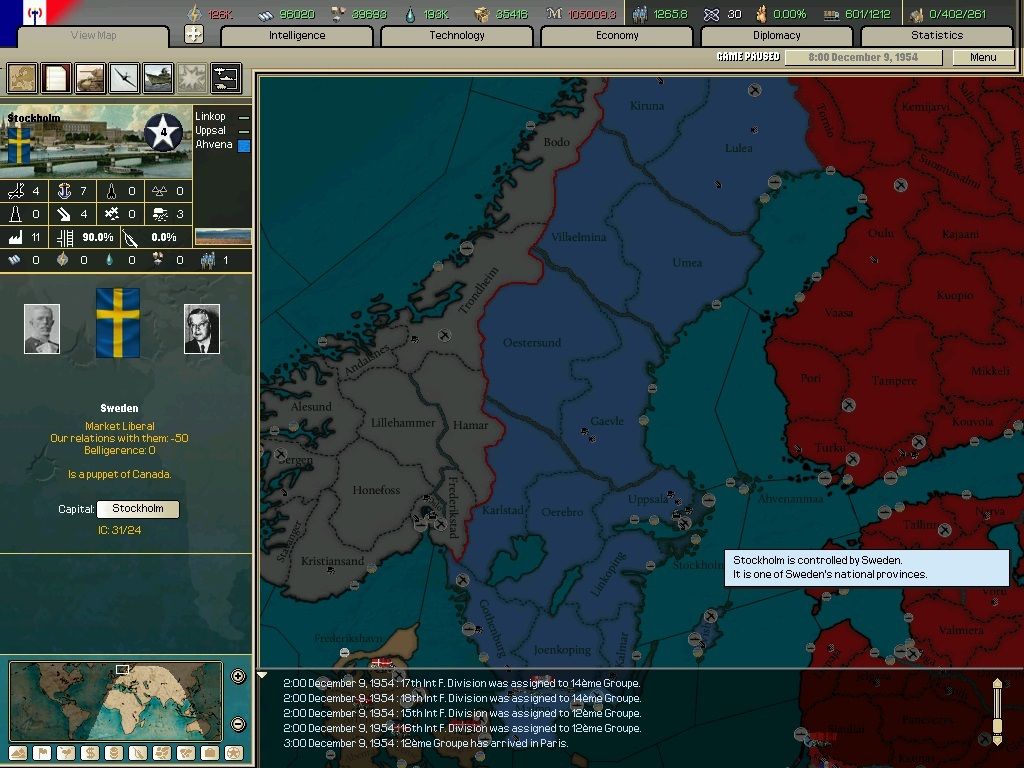
Thus, before Christmas 1954, all of the twelve founding nations of the Atlantic Community had signed the treaty of Halifax, launching themselves on a road which would lead inevitably to the modern day Atlantic Union.
However, there would be no peaceful Christmases for the Windsors or the governments of the Home Nations and Dominions. Instead, a stormy conference in Capetown would see them wrestling to resolve the most contentious unsolved question at the heart of the Atlantic Community - the role of King-Emperor Edward VIII and the Royal Family.




